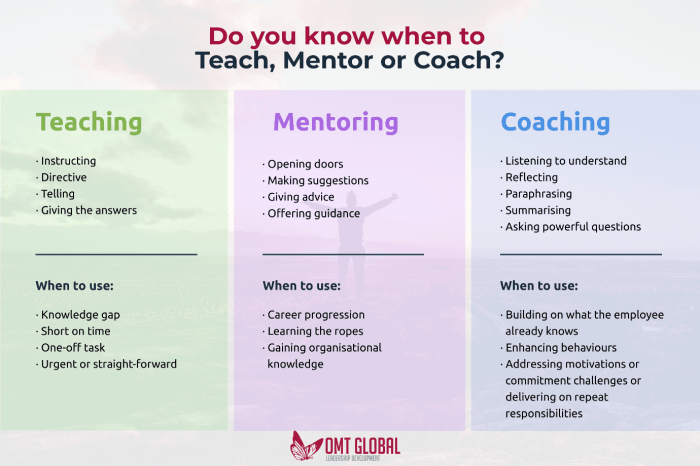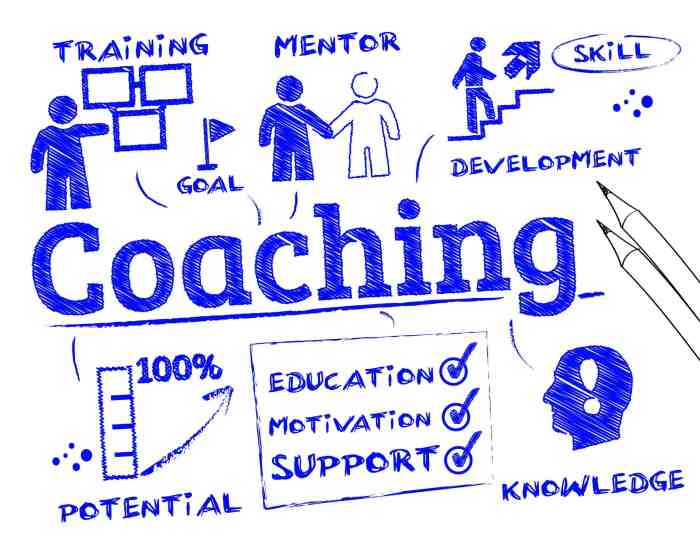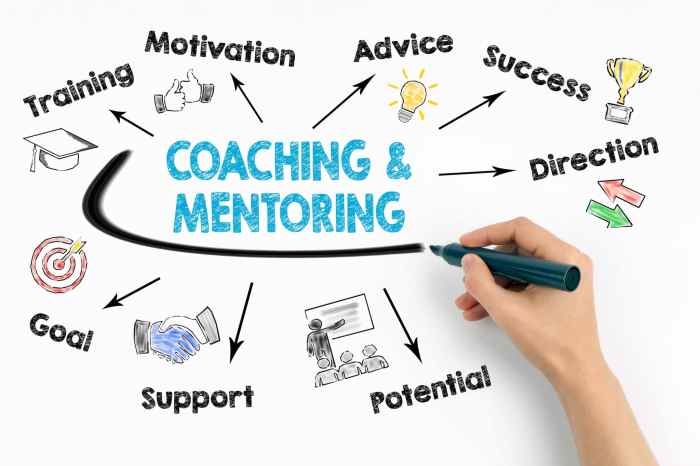A teacher coach can create an optimal coaching environment by fostering trust, setting clear goals and expectations, providing constructive feedback, facilitating reflective practice, promoting collaboration and learning communities, designing and implementing professional development, and evaluating coaching effectiveness.
This environment is essential for teacher growth and development, and it can lead to improved student outcomes. By creating a supportive and collaborative environment, teacher coaches can help teachers to develop their skills and knowledge, and to become more effective educators.
Establishing Trust and Rapport
Building trust and rapport between a teacher coach and teacher is essential for creating a supportive and collaborative coaching environment. The coach should prioritize establishing a relationship based on mutual respect, empathy, and confidentiality. Strategies for fostering trust include:
- Active listening: Demonstrating genuine interest and understanding through attentive listening and reflecting on the teacher’s perspectives.
- Empathy: Putting oneself in the teacher’s shoes and understanding their challenges and motivations.
- Confidentiality: Maintaining the privacy of coaching conversations and respecting the teacher’s boundaries.
- Non-judgmental approach: Avoiding criticism or blame, instead focusing on strengths and areas for growth.
Setting Clear Goals and Expectations

Establishing clear goals and expectations is crucial for guiding the coaching process and ensuring alignment between the coach and teacher. The coach should involve the teacher in setting goals that are specific, measurable, achievable, relevant, and time-bound (SMART). Defining success criteria and establishing regular check-ins helps monitor progress and make necessary adjustments.
Providing Constructive Feedback

Constructive feedback is essential for promoting growth and development. The coach should provide feedback that is timely, specific, and actionable. Feedback should be delivered in a supportive and non-judgmental manner, focusing on strengths and areas for improvement. Specific examples and data can be used to support feedback and encourage self-reflection.
Facilitating Reflective Practice
Reflective practice is a powerful tool for teacher development. The coach can create opportunities for teachers to engage in self-reflection through journaling, peer observation, and video analysis. Reflective practice allows teachers to examine their practice, identify areas for improvement, and develop strategies for growth.
Promoting Collaboration and Learning Communities: A Teacher Coach Can Create An Optimal Coaching Environment By

Collaboration and learning communities among teachers can enhance professional development and improve teaching practices. The coach can facilitate initiatives that promote peer support, knowledge sharing, and collective problem-solving. This can include creating teacher study groups, organizing workshops, or establishing online discussion forums.
Designing and Implementing Professional Development
Effective professional development programs are tailored to individual teacher needs and goals. The coach should assess needs, involve teachers in the design process, and implement programs that utilize blended learning, coaching cycles, and data-driven approaches.
Evaluating Coaching Effectiveness

Evaluating the effectiveness of teacher coaching is essential for continuous improvement. The coach can collect feedback from teachers, administrators, and students to assess the impact of coaching on teacher practice and student outcomes. Data and evidence can be used to identify areas for improvement and refine coaching strategies.
Popular Questions
What are the benefits of a teacher coach?
Teacher coaches can help teachers to improve their teaching skills, develop their knowledge, and become more effective educators. They can also provide support and guidance to teachers, and help them to create a positive and productive learning environment.
What are the qualities of an effective teacher coach?
Effective teacher coaches are typically experienced teachers who have a strong understanding of teaching and learning. They are also good listeners, communicators, and mentors. They are able to build trust and rapport with teachers, and they are committed to helping teachers grow and develop.
How can I find a teacher coach?
There are a number of ways to find a teacher coach. You can ask your school or district for recommendations, or you can search online for teacher coaching services. You can also find teacher coaches through professional organizations, such as the National Association for the Education of Young Children (NAEYC) or the Association for Supervision and Curriculum Development (ASCD).

